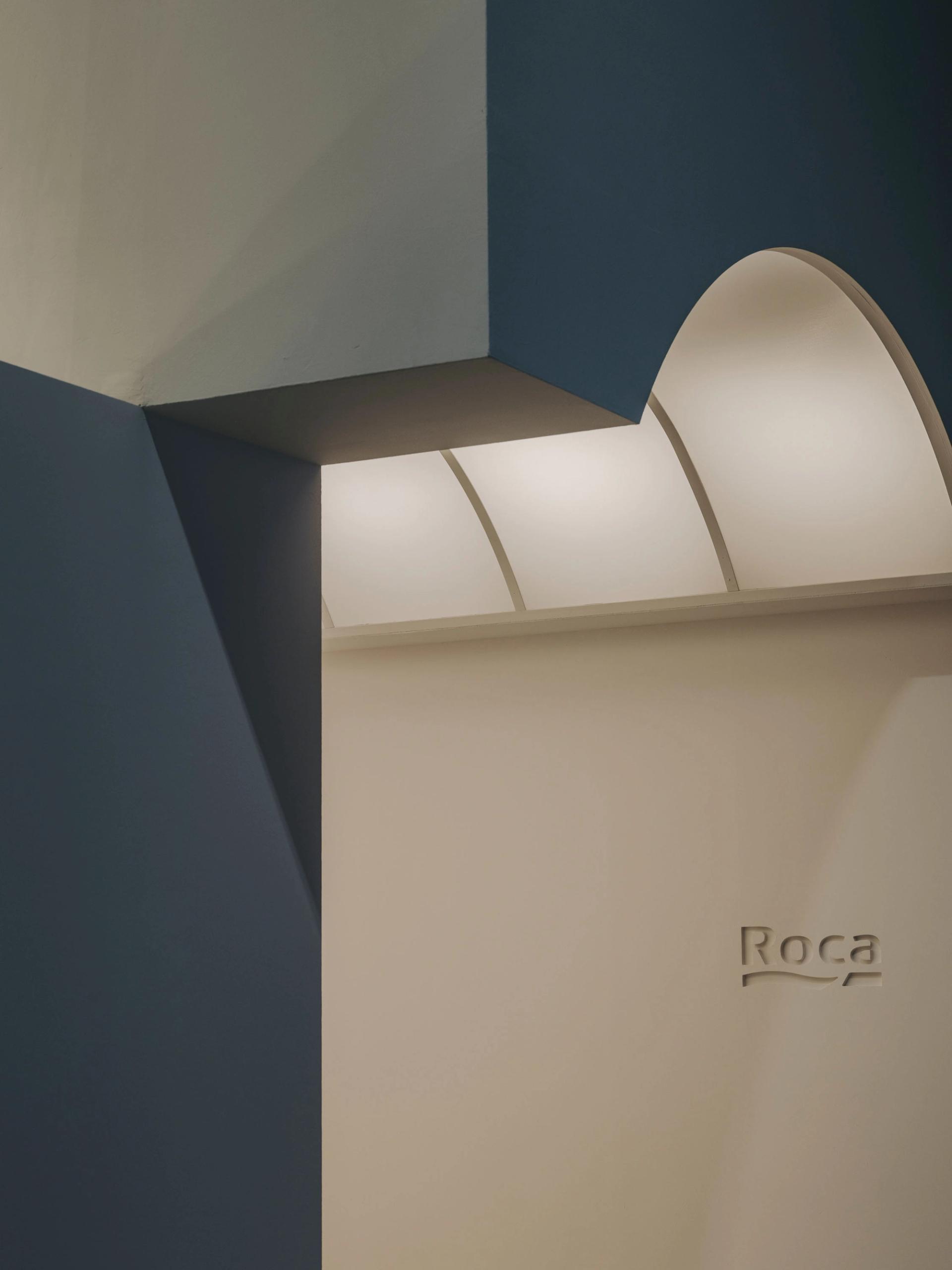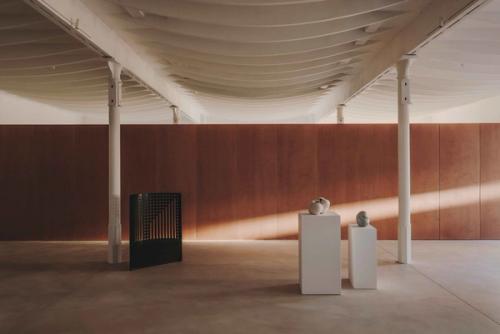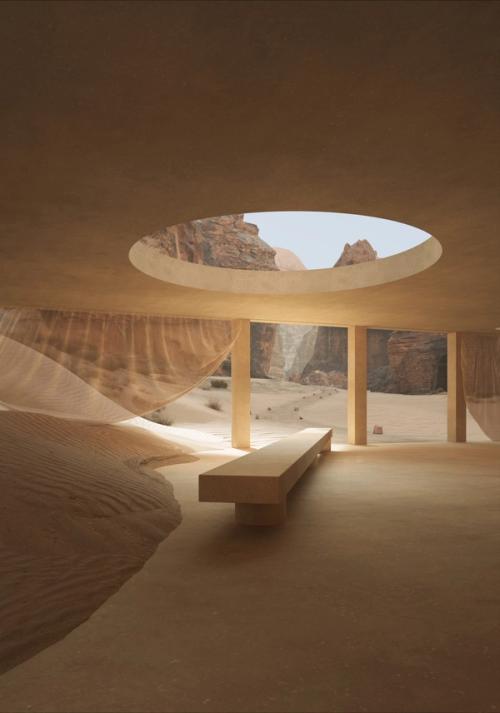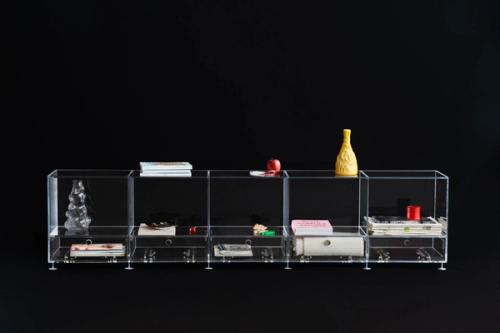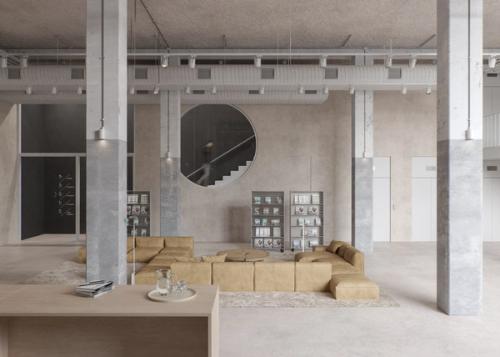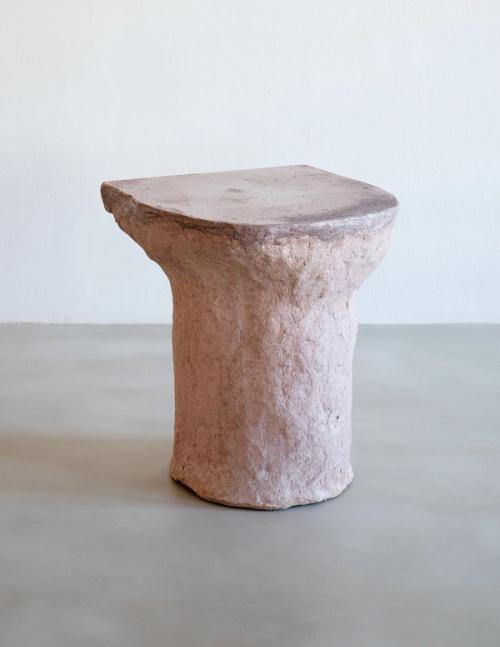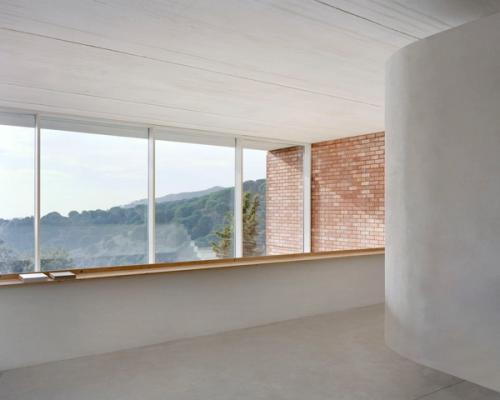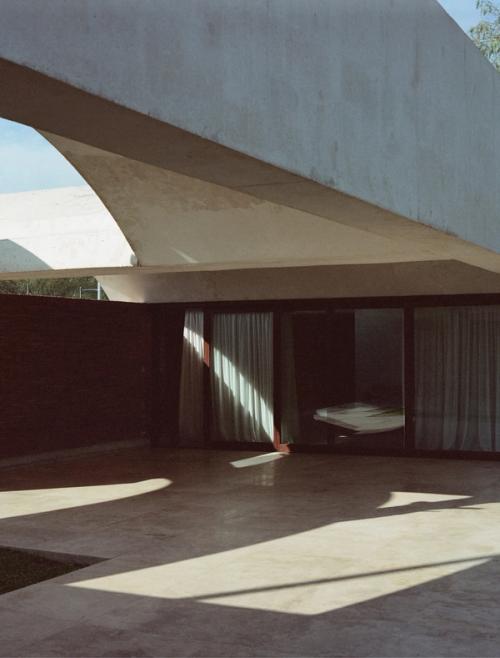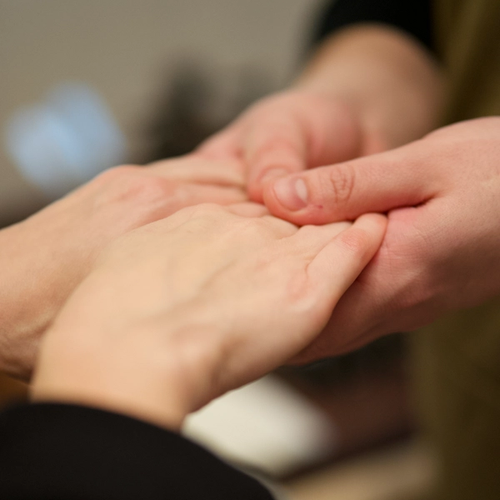Roca Salone
'Mediterranean Perspectives' is a tribute to Roca's roots: Barcelona and the Mediterranean way of life. The stand, showcased at the 2024 Salone del Mobile in Milan, highlighted the brand's innovative collections and commitment to people and the environment by celebrating vernacular architecture.

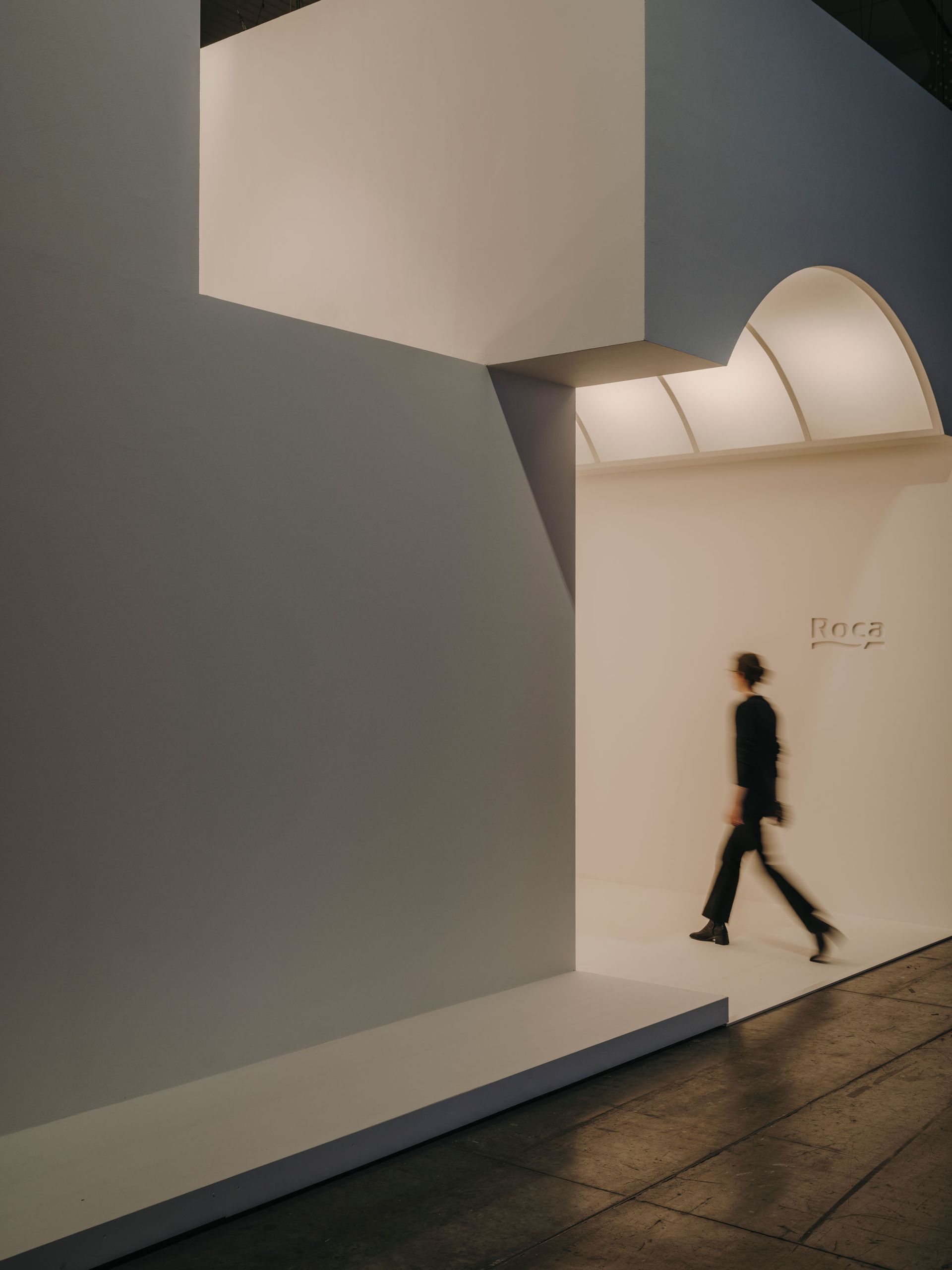
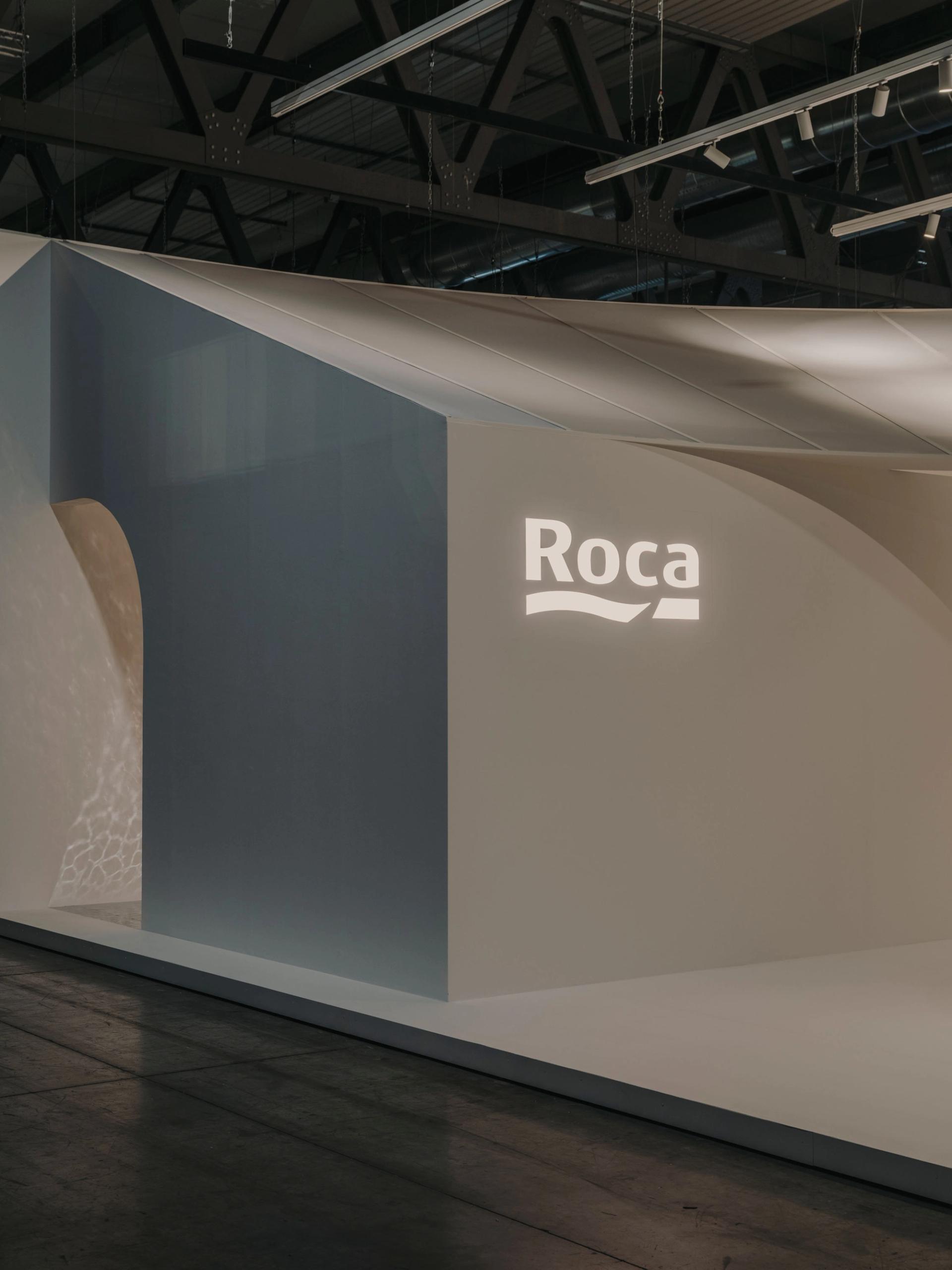
A Return to the Origins
Roca was founded in 1917 in Gavà, a town near Barcelona. The company, dedicated to manufacturing sanitary and bathroom products, has never shied away from its Catalan roots. It takes pride in being Mediterranean and makes it part of its core values despite being internationally renowned. Acknowledging this, in ‘Mediterranean Perspectives,’ we elevate the brand by going back to its origins—vernacular architecture and the essence of Mediterranean living.
The Mediterranean lifestyle, which is highly influenced by the climate, gives in to life outdoors and social gatherings. Following this premise, the project is designed to understand embrace its surroundings, creating a central area in the form of a plaza between Roca’s stand and the company’s two other installments at the fair. This space aims to welcome visitors and serve as a gathering place for them, recreating a traditional Mediterranean scene.
Vernacular Catalan architecture is characterized by the use of geometric patterns, especially that of the “volta Catalana—” a vaulted, ceramic ceiling. This technique originated in Roman times, and well-renowned architects like Josep Lluís Sert or Antonio Bonet Castellana helped embrace the recognition of this shape, turning it into an iconic gesture in Catalan architecture. In the project, the stand takes inspiration from these geometries, creating a series of compartmentalized spaces with curved walls crowned with high Catalan vaults.
→ "Les casetes de volta" are a clear example of vernacular Mediterranean architecture employing the Catalan vault. Photography by Lluis Ibañez Melia.
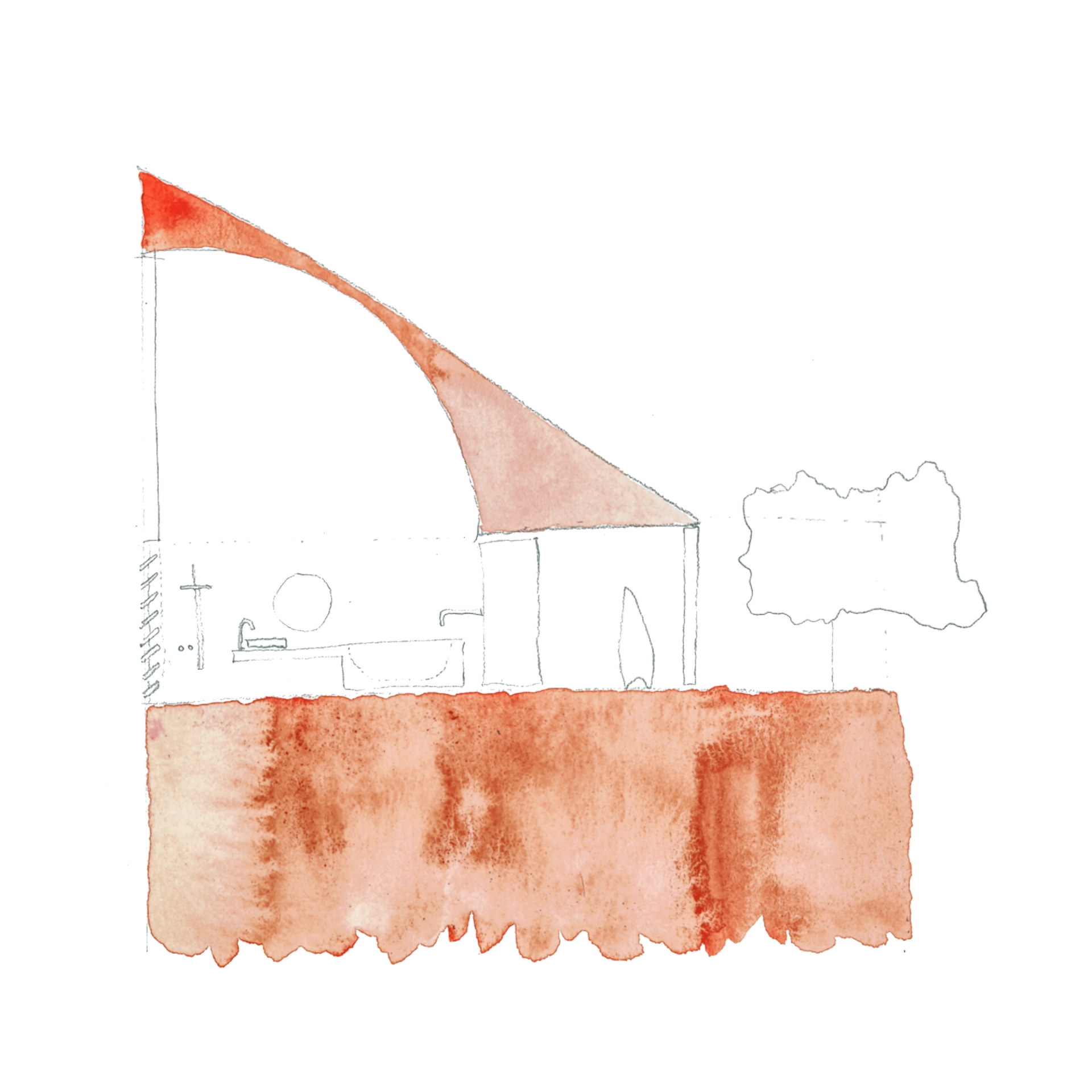
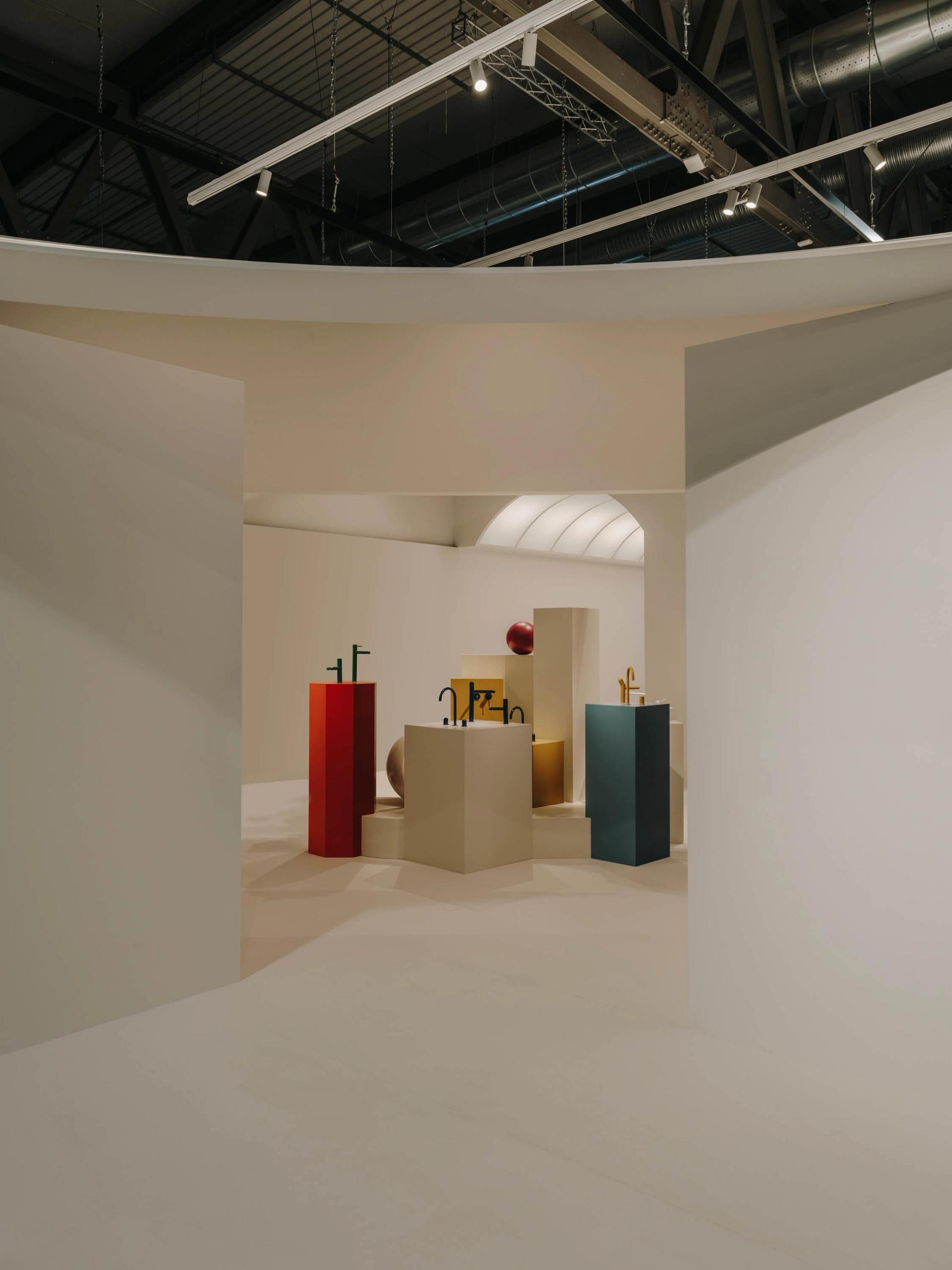
Neutrality as a Strategy to Stand Out
The stand's exterior has been designed with a warm and welcoming atmosphere that reflects Roca's values of Mediterranean culture. It intentionally avoids the use of colour, which draws attention to the volume's intricate geometries and sets it apart from the crowded, bustling environment of the Salone.
The main entrance is characterized by a large semi-circular wood and mesh textile ceiling, which spans uninterrupted from one wall to the other. Right in front of it, the reception counter for visitors employs the same materials, creating layers of transparency and fluidity. In contrast to the grand scale of these elements, the actual entrance, right behind the counter, takes on a more introverted character, framing just a glimpse of what is on display inside.
Following this attitude, the interior space is divided into various capsules, each dedicated to showcasing Roca's multiple products. The arrangement of these geometries creates an immersive experience, topped by the contrasting colours each collection brings to the otherwise neutral space. In addition to the main entrance, the stand features three alternative ways in, allowing the user to have different experiences when approaching it.

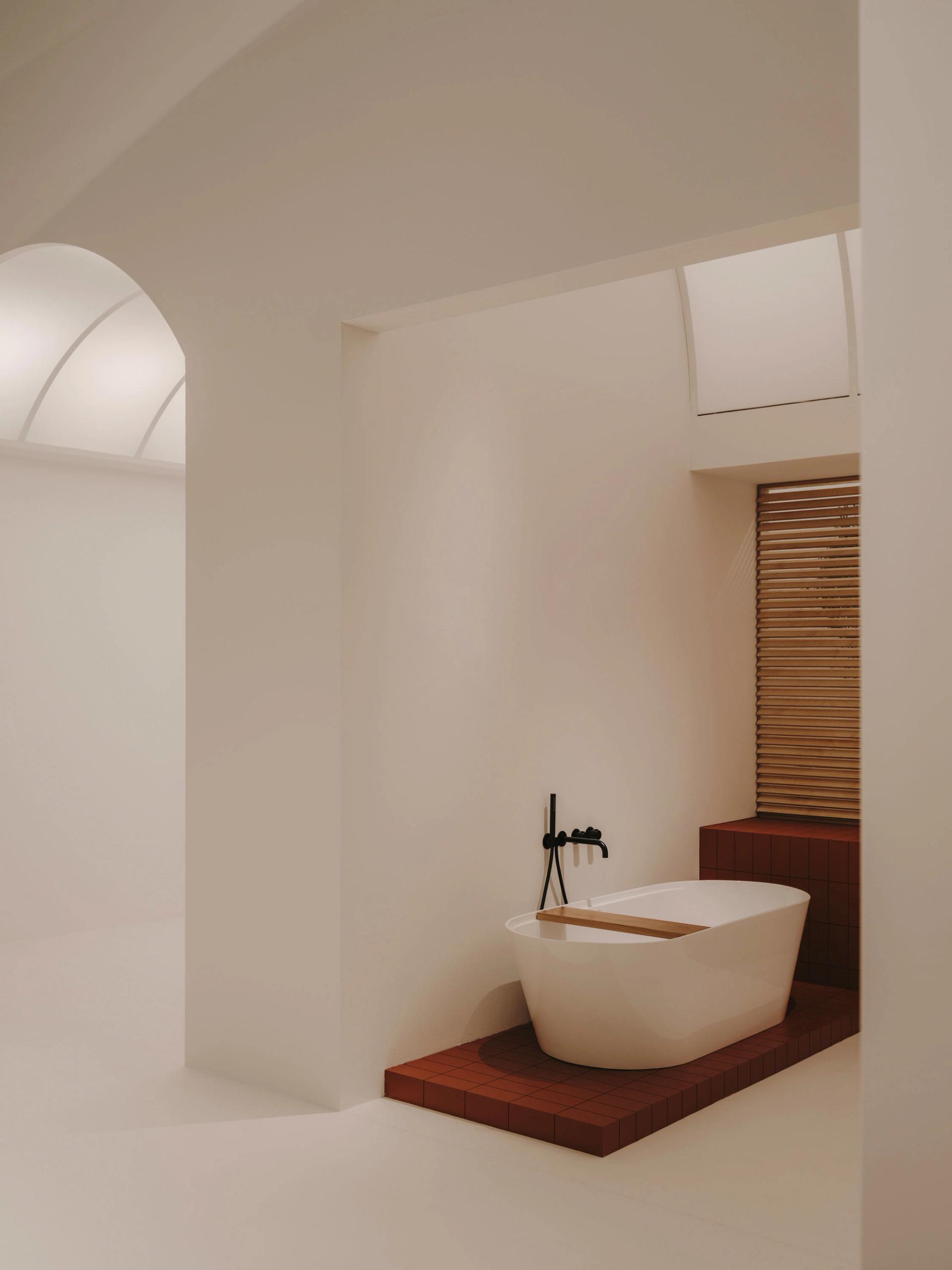
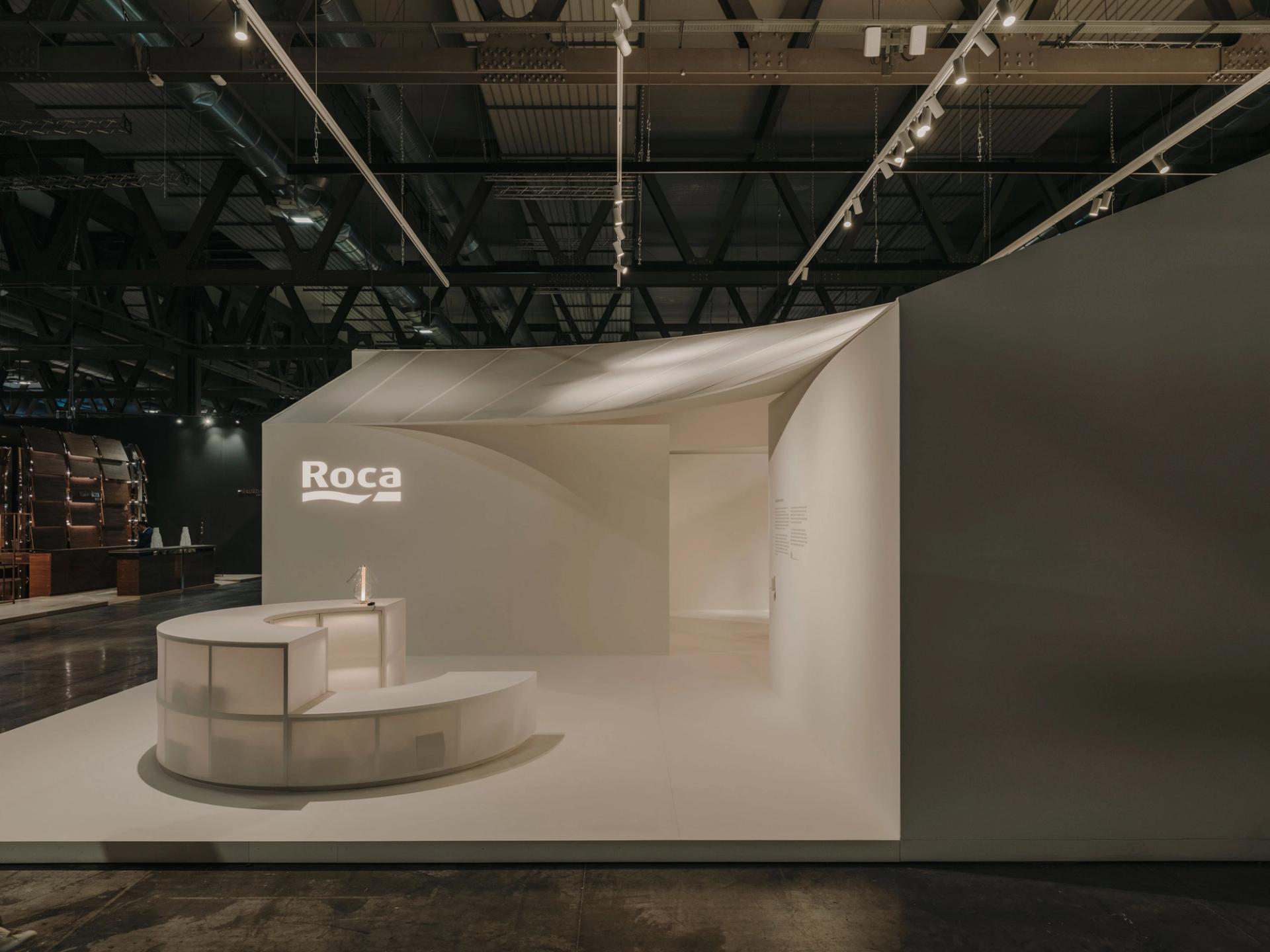
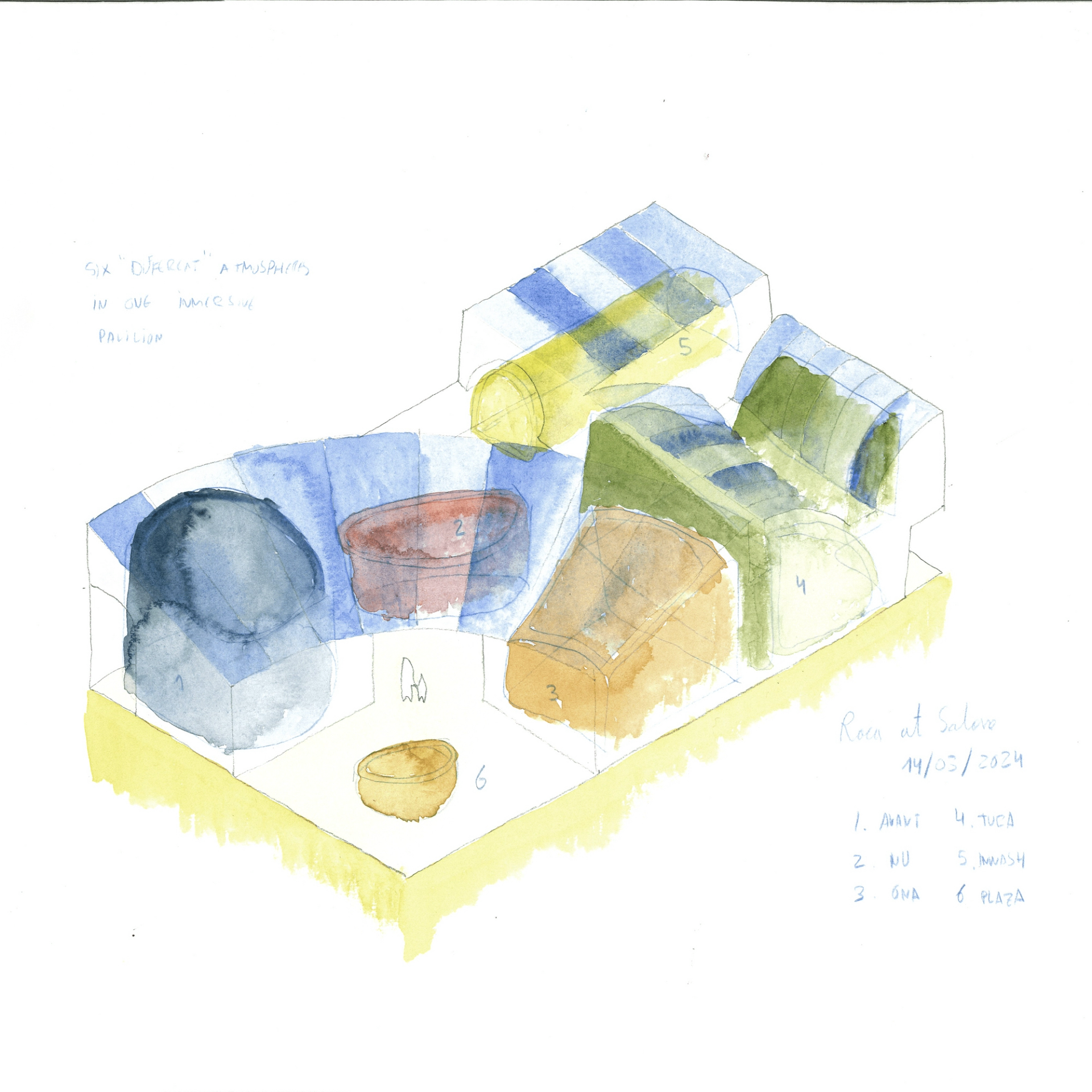
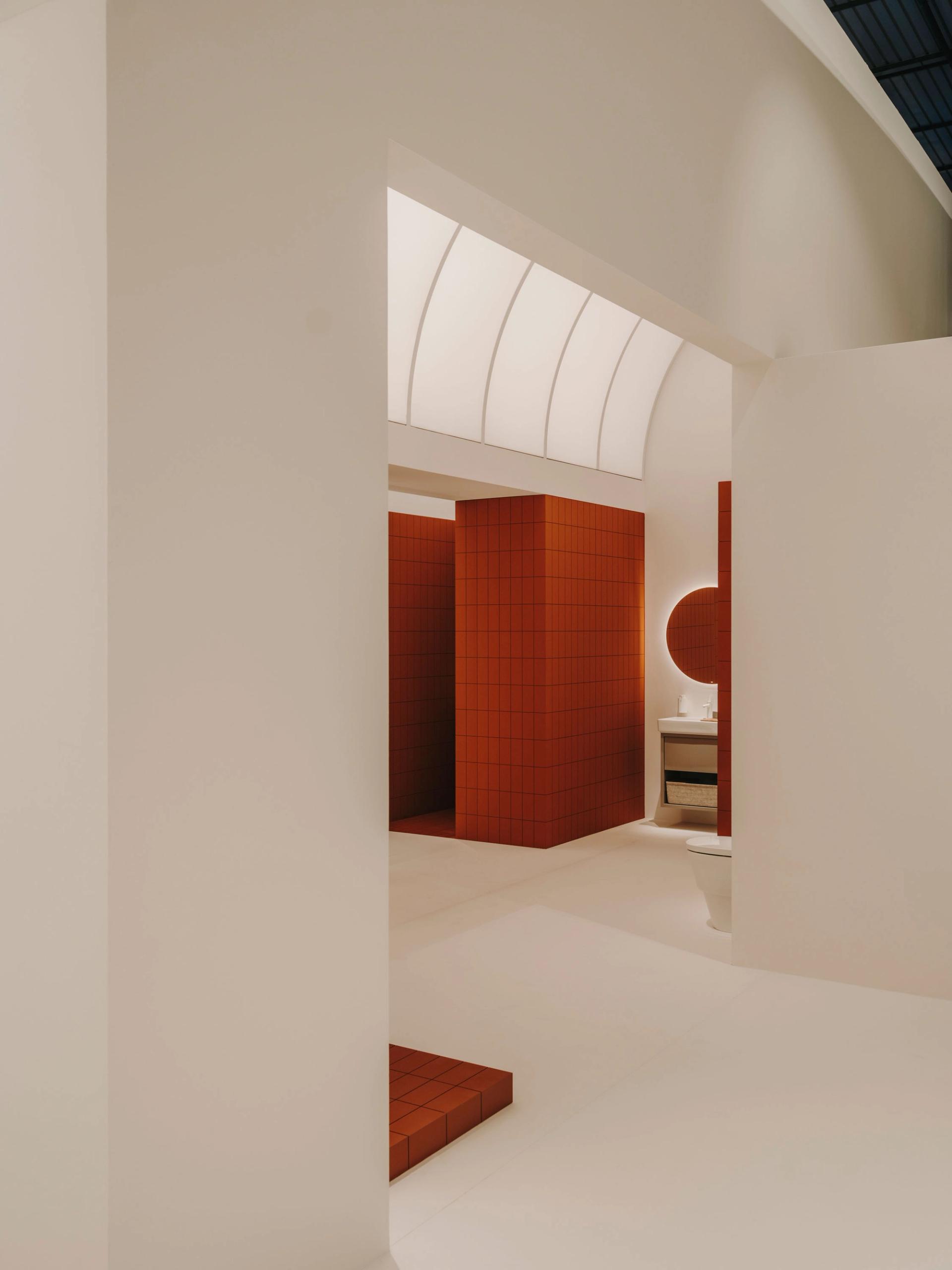
Sustainability in Ephemeral Design
Roca's commitment to minimizing the environmental impact was a key consideration during the design phase. Recognizing the stand's temporary nature, our strategic focus was on finding a solution that would not compromise the outcome while leaving a positive impact behind.
The project's choice of materials followed these premises, focusing exclusively on natural sources. Every element in the stand is exactly what it appears to be, without any imitations or replicas.
The structure was and is reusable. Built with wood sourced from previous projects, it will be repurposed for future installations now that the fair is over, ensuring that nothing goes to waste. Another important decision was using hand-painted tiles instead of ceramic, non-reusable tiles for the collections display. This technique, introduced in Roca Gallery's space in Barcelona by local interior designer Francesc Rifé, has proven more sustainable, allowing easier recycling and reuse. Overall, the stand is proof that sustainability in ephemeral design is possible.
